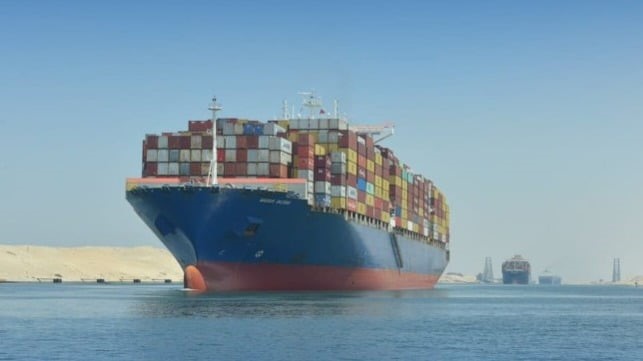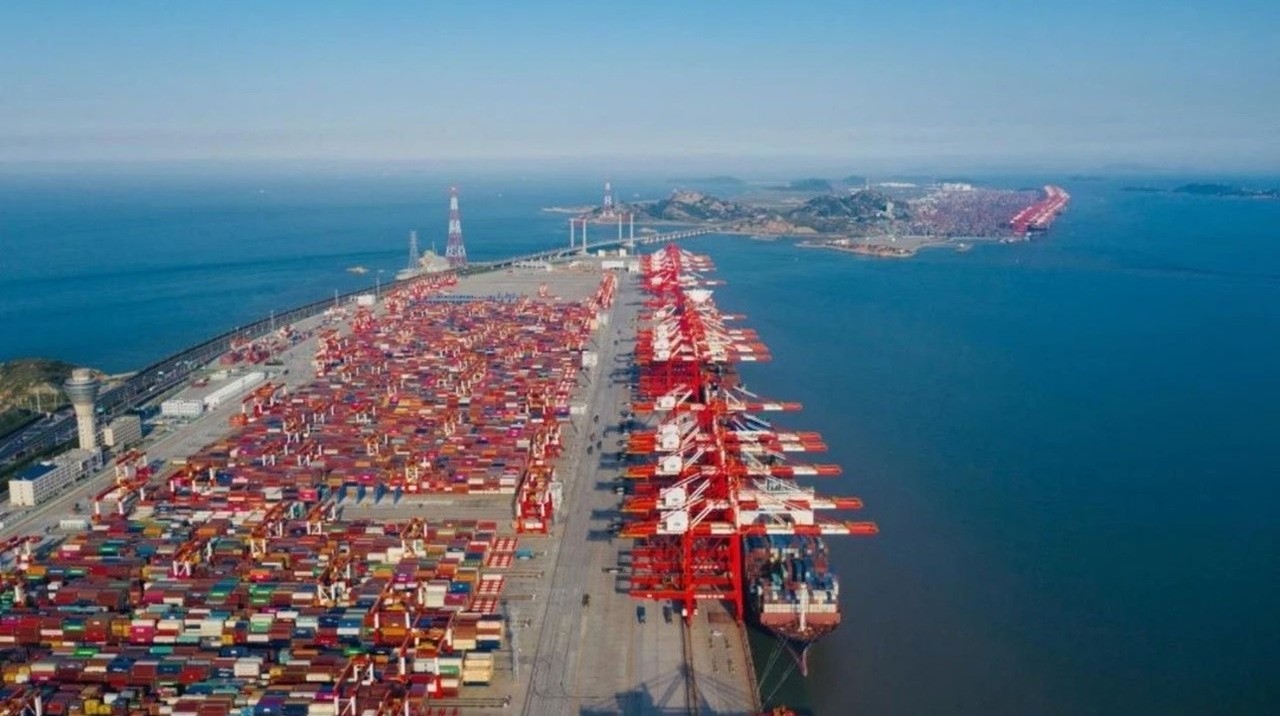
Major Port Shutdown: ILA Dockworkers Hit The Picket Lines, Halting Operations On Atlantic And Gulf Coasts
The International Longshoremen’s Association (ILA) has initiated a significant strike, effectively closing all ports from Maine to Texas as of midnight on Tuesday.
This action affects approximately 45,000 port workers across 36 ports, representing nearly half of all U.S. containerized imports and exports during the crucial ocean peak season. It marks the first coast-wide strike by the ILA in nearly 50 years.
The strike commenced at 12:01 a.m. as ILA members set up picket lines along the Atlantic and Gulf Coasts.
Central to the dispute are demands for wage increases and protections against automation, with the United States Maritime Alliance (USMX) and ILA unable to reach an agreement despite last-minute negotiations.
USMX’s final proposal included a nearly 50% wage increase, doubled contributions to retirement plans, enhanced healthcare options, and maintained current language on automation.
However, ILA President Harold Daggett criticized the offer, stating, “USMX brought on this strike when they decided to hold firm to foreign-owned Ocean Carriers earning billion-dollar profits at United States ports, but not compensate the American ILA longshore workers who perform the labor that brings them their wealth.”
The ILA, North America’s largest maritime union representing around 85,000 longshoremen, deemed USMX’s proposal insufficient to meet members’ needs.
While previous reports indicated the union sought a 77% pay increase, it has since adjusted its demand to 61.5%.
Daggett emphasized the union’s readiness to continue the strike until the workers receive appropriate wages and protections.
“We are prepared to fight as long as necessary,” he stated, highlighting the potential for significant disruptions to both imports and exports, including roll-on/roll-off operations.
The ongoing strike threatens to exacerbate existing challenges in ocean supply chains, which have already faced significant disruptions in 2024 due to conflicts in the Red Sea, drought conditions in the Panama Canal, and the collapse of the Baltimore bridge.
Taft-Hartley Act Considerations
Despite the high stakes of the strike, the Biden administration has indicated that President Biden does not plan to invoke the Taft-Hartley Act, which allows for federal intervention in labor disputes deemed a national emergency. However, Transportation and Infrastructure Committee Chairman Sam Graves and Coast Guard and Maritime Transportation Subcommittee Chairman Daniel Webster have urged the president to utilize this authority to restore port operations and facilitate negotiations.
In a joint statement, they warned of the economic repercussions, stating, “Every day of delay will cost the economy billions of dollars, and it will only be a matter of days before the resulting cargo backlogs will impact consumers and the upcoming holiday season.”
Daggett countered that invoking Taft-Hartley would not be effective, as workers would simply slow down operations. “You’re better off sitting down, getting a contract, and letting us move on with this world,” he stated.
Calls for Collective Bargaining
President Biden issued a statement urging USMX to negotiate fairly with the ILA, emphasizing the importance of collective bargaining and fair compensation, particularly given the record profits made by ocean carriers since the pandemic.
“It’s only fair that workers, who put themselves at risk during the pandemic to keep ports open, see a meaningful increase in their wages as well,” he said.
Detention and Demurrage Regulations
In anticipation of the strike, the Federal Maritime Commission (FMC) reminded regulated entities of their obligations during the port closures, including compliance with detention and demurrage regulations.
Surge in U.S. Imports
The strike coincides with a surge in U.S. imports, driven by a strong economy. In the first half of 2024, import volumes reached 12.1 million twenty-foot equivalent units (TEUs), marking a 14.8% increase compared to the same period in 2023. Projections for September indicate 2.31 million TEUs—up 14% year-over-year—while October forecasts 2.08 million TEUs, a 1.3% increase.
Immediate Impact on Vessel Arrivals
With more than 100 vessels expected to arrive at affected ports this week, immediate impacts are anticipated.
However, Flexport does not foresee significant cargo diversions to the West Coast in the short term, as vessels destined for East Coast ports are likely to remain anchored offshore rather than diverting, which would not be economically viable.
The situation remains fluid as both sides navigate this unprecedented labor dispute, with the potential for far-reaching economic consequences.


